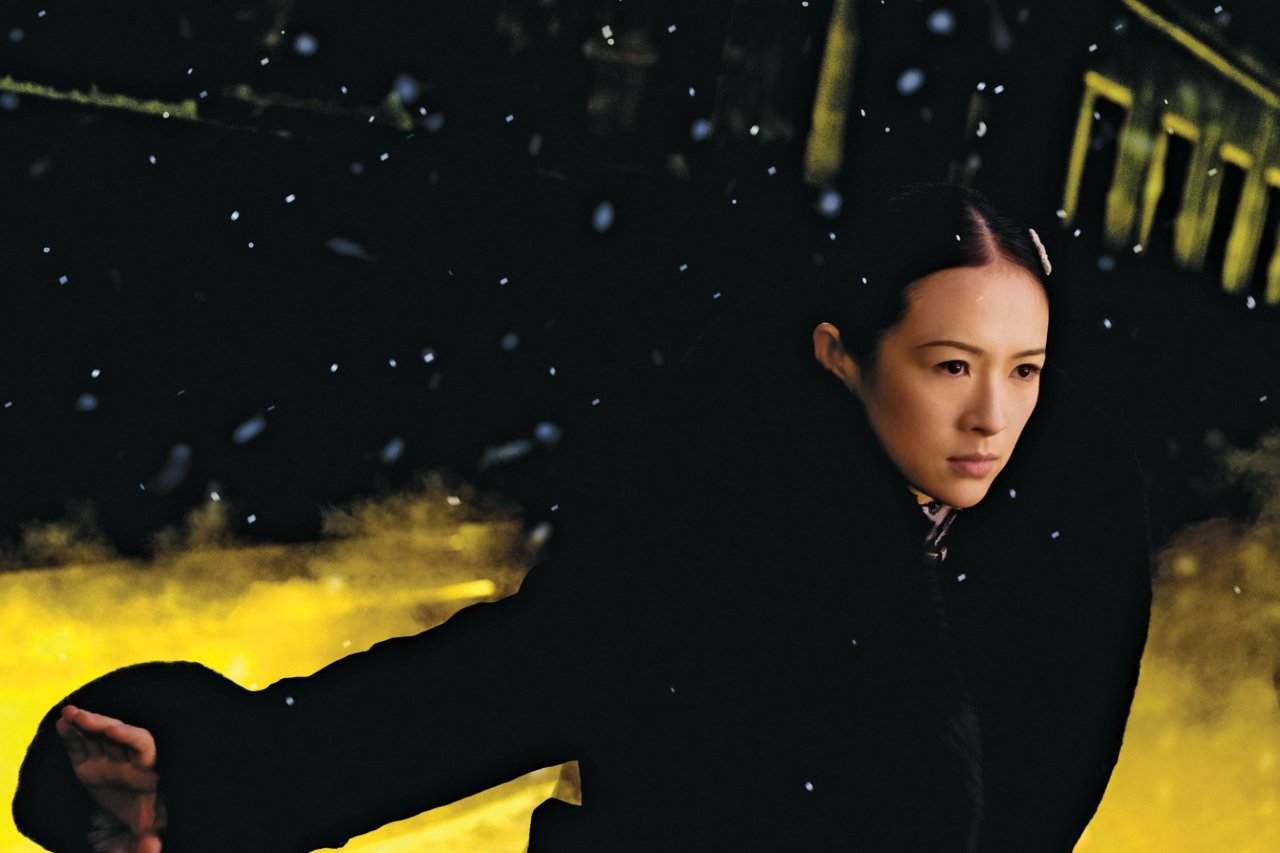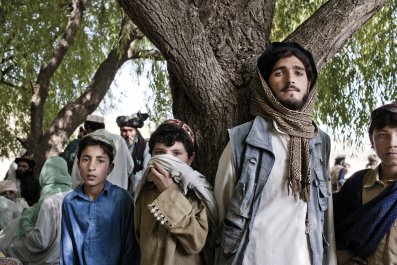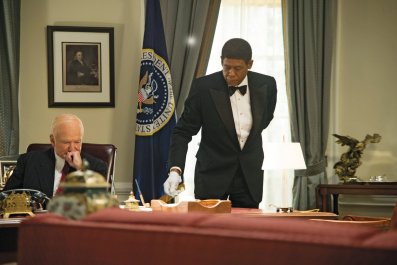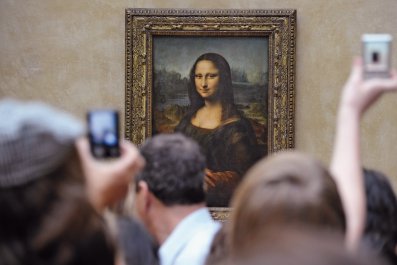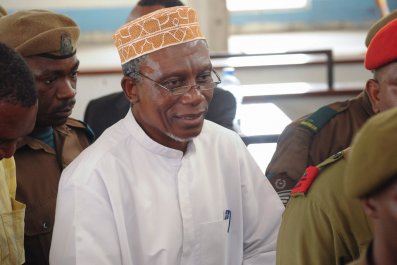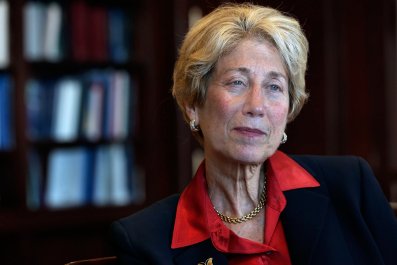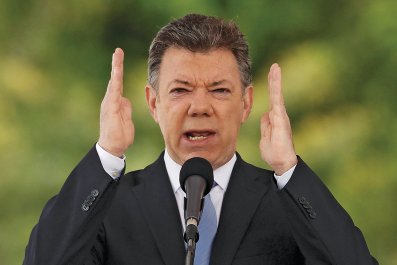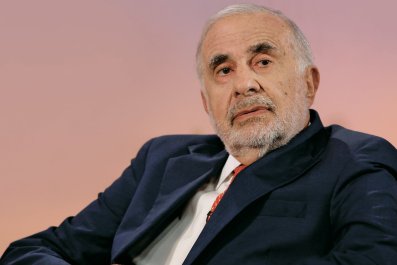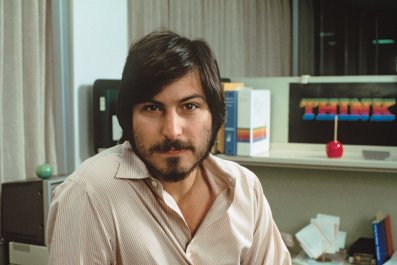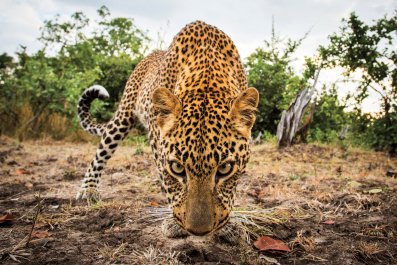Zhang Ziyi is, even in person, a paragon of glamour.
The dress she's wearing is designer. On her face, nary a wrinkle. A collection of diamond rings is coiled around her fingers. It's a disorienting sight for an actress who has made a career of doling out balletic ass kickings in films like Crouching Tiger, Hidden Dragon; Hero; and House of Flying Daggers. That the slight, elegant 34-year-old has become one of the faces of new kung fu is a testament to both her acting ability and the transformative power of cinema.
In her latest film, The Grandmaster, Zhang has reteamed with director Wong Kar Wai (they worked together on the 2004 movie 2046) to tell the life story of Yip Man (Tony Leung), a wing chun grandmaster who became a renowned kung fu instructor and mentor to Bruce Lee. Zhang plays Gong Er, an expert of the bagua school of kung fu, who clashes—both physically and romantically—with Yip.
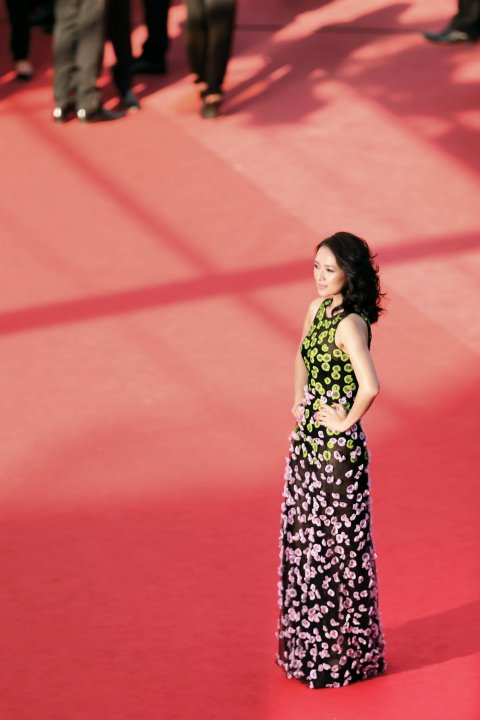
This interview has been edited and condensed.
Were you a fan of kung fu or Bruce Lee growing up?
I'm not a huge kung fu or Bruce Lee fan. I'm into girly things! But Yip Man is a very famous figure in Chinese culture, so we all know of him.
How did you become one of the premier kung fu stars if you weren't into martial arts?
When Ang Lee picked me for Crouching Tiger, I didn't know that one day I would be a role model for kung fu films. People look at me as this very strong lady. I'm glad I did it, because for me it was something new, and learning all the kung fu skills has made me stronger, both mentally and physically.
Kung fu was a very male-dominated arena. Do you feel like you had something to do with breaking the gender barrier?
After Crouching Tiger, you saw Salt, with Angelina Jolie, and a lot of other movies. I love seeing strong women on screen. It just feels right.
What sort of training did you undergo for The Grandmaster?
We trained for about six months, and it was very intense. Wong Kar Wai wanted us to become martial artists before we started the movie. He'd come to the training room before we started shooting and watch us, and say things like, "You have to kneel down a little bit more." That made us nervous, so we trained harder. I had three different kung fu masters who taught me different approaches to my kung fu discipline in the film.
After Crouching Tiger, you could have come to America and done Hollywood films, but you didn't.
Whenever I pick a role, I think very carefully about why I'm doing the movie. I often get scripts from Hollywood, but they're stereotypical roles for a Chinese actress. They think Chinese actresses can only do kung fu or action, but I can do so much more. Memoirs of a Geisha was a big moment for us to show the world that we can do more than kick ass—we can act. I would love to come back to America, though. It just depends on the project.
Bingbing Fan is in the upcoming X-Men film, and Bingbing Li is in the next Transformers sequel. We're seeing more and more Chinese actors in films, and a lot of that has to do with the potential of the Chinese box office.
Bingbing Fan is in the Chinese version of Iron Man 3, too. For them, maybe it's good experience. On the other hand, I think that if you're a serious actor, you don't want to be in these movies because it doesn't require anything. I get asked for these kinds of roles too, and I always say no. I met with Zack Snyder a long time ago. Recently I had a chat with Baz Luhrmann. But you have to know who you are and what you want to do, and not just go, "Oh, there's this big, commercial Hollywood film, I'm going to do it."
You recently starred in a film, Love for Life, that tackled AIDS—a taboo subject in Chinese culture and cinema. What are the other taboos in China that are tough to tackle on film?
One thing we can never touch is the Cultural Revolution. That never happens. And we don't have gay-themed films in China. It's hard for Chinese artists because the path is so narrow. You can't touch history. If people are unhappy with the government, you can't touch it. You can't explore gay themes. It's very limited, but I think everyone in the creative world is fighting to open things up.
Are we going to see you make an appearance in the Crouching Tiger sequel?
I don't know yet, but strange things can happen!
You started ballet at age 8 and trained at the Beijing Dance Academy from 11 to 15 years old. How did that influence you and your career?
My years of dance training totally changed my way of thinking. At that age I thought I couldn't take it. But my perseverance pushed me and told me not to give up. You're young and feisty and want to be good. So you go for it, even if your body can't take it. I hated it, but I couldn't quit because I'd lose face. So I suffered for so long. Now I don't do anything when I feel like I'm being forced to do it, or that I don't have that special feeling for.
It's fascinating, then, that you've become this global star because of your balletic kung fu films.
Life is always fair. I paid for it back then, and now I'm reaping the rewards.



